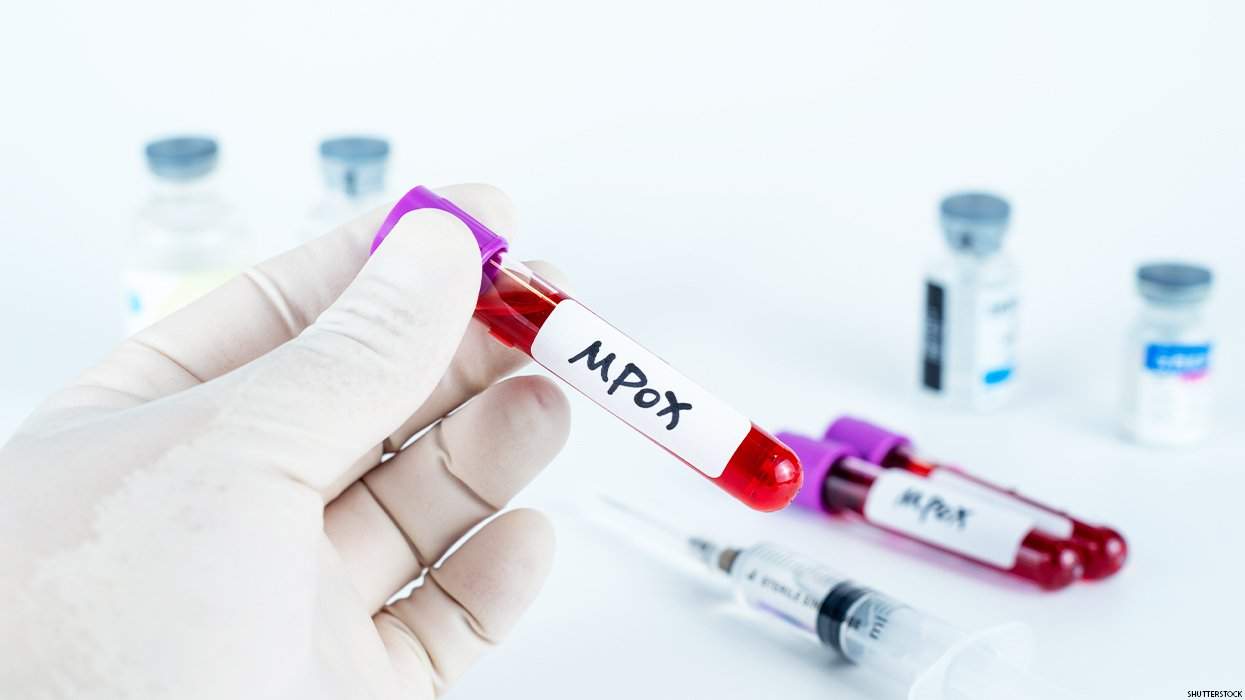A little over a year ago, on May 17, 2022, Americans learned that another pathogen had entered the population just as they were recovering from the COVID pandemic. Earlier that day, mpox, formerly known as monkeypox, was confirmed in Massachusetts after spreading throughout Europe. Since then, 30,395 cases have been registered in the United States, and while the number of cases is down significantly, health officials warn that it will take work to keep mpox at bay. Now a recent cluster of cases in Illinois demonstrates the need for vigilance.
The Centers for Disease Control and Prevention reports continued community transmission in the United States and abroad. The CDC said Monday that it and local partners were investigating a cluster of cases of mpox in the Chicago area.
The Chicago Department of Public Health received 12 confirmed and one probable case of mpox between April 17 and May 5. The patients were all men between 24 and 46 years old. Although none of the patients required hospitalization despite having symptoms, nine were men who had received both doses of the two-dose Jynneos mpox vaccine.
Four of the men recently spent time in New York, New Orleans, and Mexico.
Since the start of May, there have been seven additional cases.
Although vaccinated people can sometimes contract the infection, vaccination can reduce its severity, reducing the chance of hospitalization, Deputy Response Coordinator for the White House Mpox Task Force Dr. Demetre Daskalakis tells The Advocate.
“We know that the vaccine, at least on the most recent vaccine effectiveness that’s been released, has effectiveness for two doses of about 70 percent, which is great,” he says. “It’s a very high effectiveness, but it also means that potentially there could be infections after vaccination.”
He explains that some infections among those vaccinated are not surprising and to be expected, based on how scientists know the vaccine works.
“It can also speak to the fact that people who are at risk for mpox got vaccinated, and so those folks may have high levels of vaccination but also potentially high opportunities for exposure,” Daskalakis says. “So those things may go together, and so we’re trying to sort that out over in Chicago now.”
He says that the administration and its health agencies are following the science and that some studies are currently underway to examine the durability of the vaccine to update any potential guidance on vaccination for mpox.
People who have received both doses of vaccine don’t need any additional doses, Daskalakis adds. “Individuals who are vaccinated, they should just have to be aware if they have a lesion [or] if they have a sore, they should still get tested for mpox.”
He says that since vaccinated people can contract mpox still, those who have had the infection should also monitor themselves for signs of exposure. Daskalakis emphasizes that “even when the vaccine doesn’t work to prevent the acquisition of infection, it seems to work really well in making the disease significantly less severe.”
Some more severe rectal complications, including severe pain, appear to have been mitigated by the vaccine among those who’ve received the doses but still contracted mpox.
“If people haven’t been vaccinated, this is the right time to get vaccinated,” he says, especially as people make plans to go celebrate Pride.
Vaccines are available at local health departments for anybody who wants to get a dose, he says, noting that intrusive questions about one’s sex life aren’t required for screening.
“We’re really leading with joy and love here,” he says. “We really want people to have an enjoyable summer and, as they go into Pride season, to celebrate the way that they want to celebrate.”
He says that for people to “get summer ready,” they can either worry and do nothing or worry and take action. To take action, he suggests visiting the CDC’s online resource guide for LGBTQ+ people’s summer preparedness.
“If you haven’t gotten vaccinated for mpox, then do it,” Daskalakis urges. “It is an important bridge to making sure that you’re able to really enjoy Pride on your terms. Make sure you know about mpox [so that people] are able to make their own decisions about their sex life. Just understand what the potential risks are for exposure and then change what you need to change or don’t change in a way that really makes sense for you.”
He adds, “As you approach Pride, I think it’s a really good time to check your oil and kick the tires and say, am I up to date with my HIV and STI prevention? If I’m living with HIV, am I on medicine? If I’m someone who could benefit from pre-exposure prophylaxis, have I been tested, and can I start on [PrEP]? Have I been tested for gonorrhea, chlamydia, and syphilis? Do I know about shigella and meningococcal disease that may be facing our community?”
Large-scale rave-like dance events in Belgium and Spain allowed the virus to spread through close contact in 2022. According to medical experts, the disease was spread at two events by prolonged close sexual contact between men who have sex with men. Before now, mpox outbreaks had been limited to Africa, where it is endemic.
According to the World Health Organization, cases have been reported in 110 countries since the outbreak started in Europe and the Americas.
Gay, bisexual, and other men who have sex with men were most affected, but not exclusively, since viruses do not choose their hosts based on sexual orientation.





































































Charlie Kirk DID say stoning gay people was the 'perfect law' — and these other heinous quotes